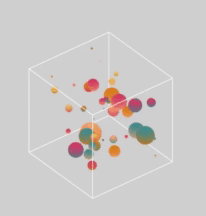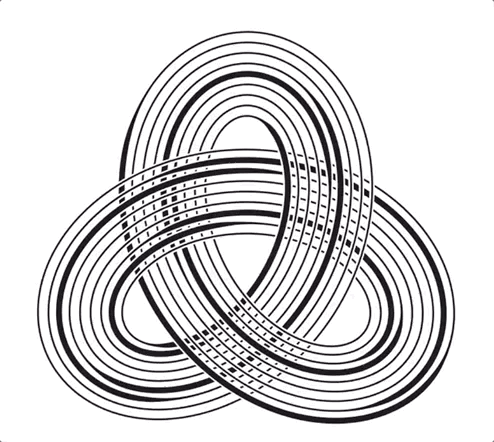Welcome to Starting Monday on patkane.global - my musing over the last week of busyness, and what leads it gives me for the next seven.
On the surface of the last couple of days, it looked like the neatest of polarities. In this anniversary week for Karl Marx, I found myself in fascinating conversations with young theorists, talking about the continuing relevance of his concept of alienation - people feeling they live a false, unchosen life.
And then I also embodied what would seem the most unalienated state possible - singing away with our fabulous band Hue And Cry and our painstakingly crafted songs, in rowdy and exuberant Dublin and Belfast venues.
Yet not is all as it seems with alienation. I want to explore the uses of being estranged from ourselves (and our natures).
My favourite Marx quote of the week came from Terry Eagleton, a teenage hero of mine:
Marxism is about leisure, not labour. It is a project that should be eagerly supported by all those who dislike having to work. It holds that the most precious activities are those done simply for the hell of it, and that art is in this sense the paradigm of authentic human activity.
It also holds that the material resources that would make such a society possible already exist in principle, but are generated in a way that compels the great majority to work as hard as our Neolithic ancestors did. We have thus made astounding progress, and no progress at all.
Do I need to write any more? This isn't just fully automated luxury communism - it's also fully automated aesthetic communism. Or some position between that, and the “hand” and “heart”-driven economy invoked by no less than the Bank of England boss Mark Carney the other week.
He waved the spectre of revolution at his corporate audience - literally, stuck up a big slide with Marx and Engels on it - and warned of the consequences if they didn’t support the middle-strata masses, as AI and automation eats their jobs in the next 20 years. There'd be hell to pay, hinted the dapper fellow. That is, unless “caring” and “crafting” careers could be given new value (both in the jobs-market and otherwise).
It would be stretching it slightly to say that the conversation in the H&C tour bus bore down in detail on the theories of Marx and Carney. But musicians know both how intimate and expressive technology is, and how disruptive of business and social models it can be too. You gotta roll with it, as a Gallagher once sang.
Deep-wired freelancers that they are, musicians often nurse surprisingly capacious axioms - ones big enough to give them hope and sustenance until the next gig turns up (that’s better than existential despair, which is always an option). On this wee tour, the uplifting theme was, “We’re doing what the machines will never be able to do! The future’s bright, the future’s ours!”
My musical partner (and brother) Gregory can be relied upon to douse any unearned idealism in an acid rain (again, a predictable mindset for the journeyman musician). And so he played us this track: “Daddy’s Car”, the music entirely composed by an AI built by Sony. The software had gorged itself on the Beatles’ back catalogue (though the song was actually manifested, and given lyrics, by a meat-based French musician).
“Chorusless twaddle”, said someone, with a sharp note of defensiveness. Judge for yourself. Another track (“The Shadow”) is more reassuringly unconvincing, supposedly aiming to emulate Duke Ellington’s style (it’s more like a drunk mathrock band). The end of the track is a properly discordant thunder, where you can thrill to its digital inhumanity.
But I recall the great young jazz pianist Brad Meldhau, surrendering willingly to the same degree of material chaos halfway through his rendition of God Only Knows (from about 10.50) - hammering the Steinway so hard and madly, you’d think he was trying to merge with it.
Here's I think the deeper point my brother was making. To what degree do - perhaps should - modern creative musicians self-alienate themselves? That is, open themselves up to the systematicity, the emergent “style”, of their digital instruments?
With the universal jukebox of streaming content everywhere, and at all times, every musician struggles to escape the weight of tradition and precedent. Yet every musician has always also been a cyborg with their instrument - whether it was Adolphe Sax doing the metallic casting, or Steve Jobs. Combined together, they are what Deleuze and Guattari called “desire-machines”. Or more precisely, it’s an “assemblage” - made from human and non-human elements - that produces the whole performance.
So a musical AI, in that sense, is just another bit of kit to stick into the musician-as-assemblage. And regardless of what makes up the whole contraption, what it’s looking for is another thrill, another intensity. No matter what's going on, it wants to take you higher (as Marvin and Sly sang).
Marx out of tension
How do I connect all this to the strong-minded young political theorists I met in the course of my last week - Mathew Lawrence from IPPR and Stacco Troncoso from the Peer-to-Peer Foundation? Both of them certainly have a strong belief in the wellbeing of humans as the ultimate measure of any technological process.
Matthew is a brilliant policy-maker-in-waiting for the Corbyn Chancellory. He imagines an ingenious range of government laws, institutions and regulations. These are all aimed at reversing the tendencies towards poles of extreme immiseration, and extreme wealth, that comes from the concentrated ownership of advanced technologies.
Mathew - bizarrely enough, quite like Mark Carney - wants a decentralised, distributed automation, where even the smallest cooperatives and enterprises could benefit from it.
Stacco meets Mathew from the same place, but from the ground up - literally. A veteran of the Spanish indignacios movements, his Commons Transition Primer is an attempt to place in people’s heads that there’s a different way to regard the wealth of your community, beyond just public administration or private markets.
A “commons” is a set of resources designated valuable by a community, who then become actively responsible for their maintenance and replenishment. This can be about scarcity (living within planetary limits). Or about abundance (building a body of social software that freely improves all lives). But you step up to a commons - it's not for couch potatoes.
In all these cases, humans are the primary agents - and these two tyros aim to fill their heads with strategic and developmental plans. The aim would be to reverse the situation described by Emerson: “things are in the saddle, and ride mankind”.
I’m listening to them both, massively sympathising in a political way. They would embrace Eagleton’s opening Marxist dream of self-determined creativity, and give it its infrastructure, its productive base. But at the back of my mind, I’m wondering just what is coming towards us from technological transformation.
Artificial intelligence is teaching itself how to be complex and natural. As it does so, any explanations for its discoveries will disappear further and further into a mysterious “black box”. This will be a place where its algorithms have produced results of prediction, or qualitative assessment, or even style.
But these combinations and calculations are so massive, dense and parallel that - already - software engineers are just admitting they’ll never figure out how the machine got there.
“I couldn’t figure out how that happened - it just came the way it did”. Who does that sound like? Isn’t that the classic claim to intuition and feel that every jazzer or rocker has made, through the ages?
As many people are starting to predict, we may have to deepen our engagement with science-fiction writing, if we want to genuinely rehearse how humanity may coexist with what Ray Kurzweil called, a while ago, “spiritual machines”. You could easily start with the late Scottish SF writer Iain M. Banks, who creates a seemingly-perfect society of AIs with humans called The Culture, in which pleasure and irony and boredom are the chief challenges.
But you could also maybe hang out with some modern musicians, who have always fused their humanity with their technology (rent permitting). Indeed, a world where “pleasure and irony and boredom are the chief challenges” sounds very tour-bus familiar. Rent permitting. Which brings us back to Marx again...
So my question to extract from all this, for the next seven days? Perhaps it arises from the old JBS Haldane quote: "the universe is not only queerer than we suppose, but queerer than we can suppose".
Who (and more interestingly, what) will be our creative companions going forward? How radical will our political economies have to be, when its agents don't just include flourishing humans - but strengthening artilects?
What’s your answers to these? Let me know directly, or use "Comments" below.
Find out more at patkane.global - and explore our services and consultancy page












